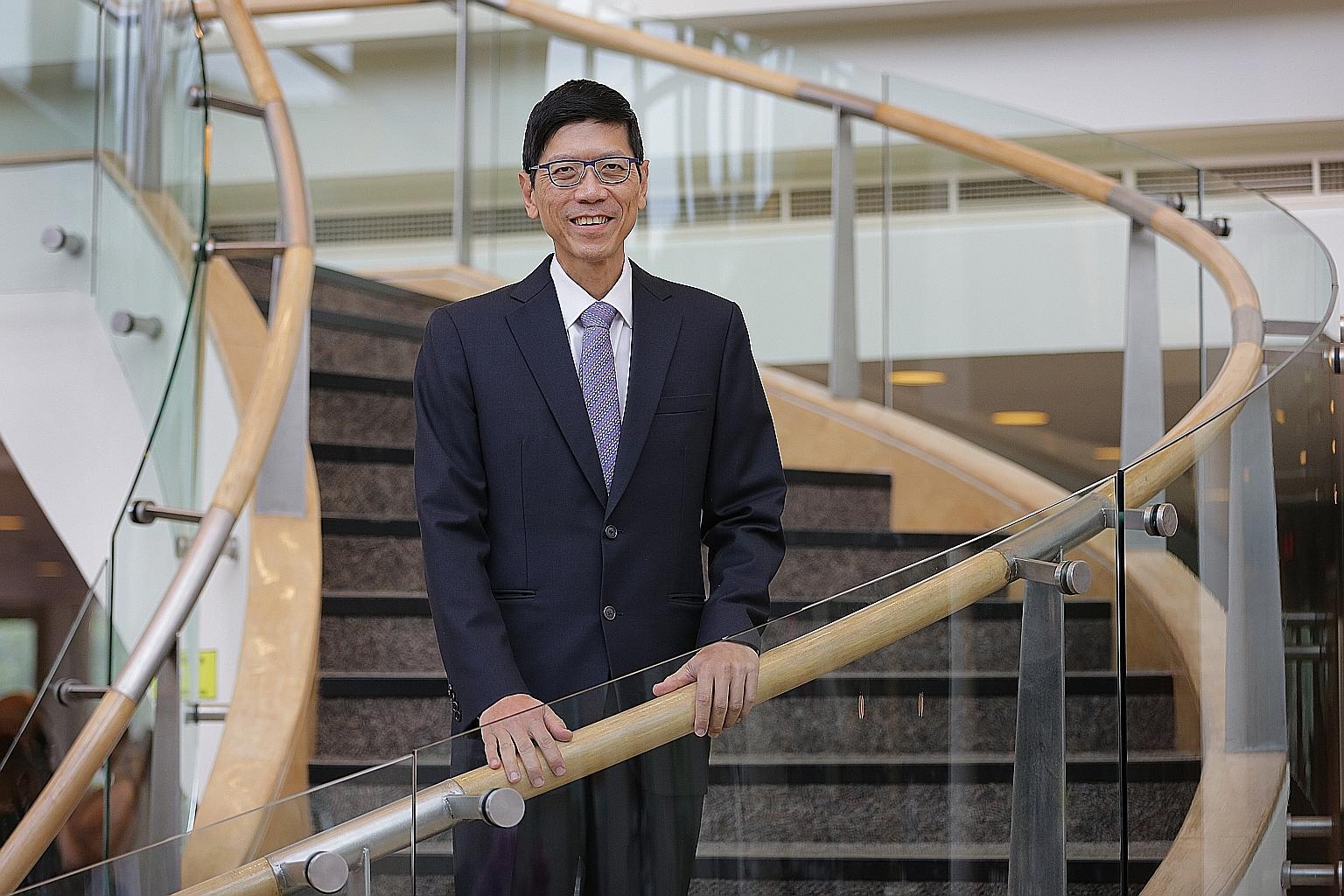Outbreaks 'are a global security issue'
Infectious disease outbreaks should not be seen as just a health problem: NUS president
Sign up now: Get ST's newsletters delivered to your inbox

Prof Tan advised an expert panel which has recommended that US$4.5 billion (S$6.1 billion) be set aside each year to strengthen public health systems across the globe.
ST FILE PHOTO
These days, it does not matter if an infectious disease outbreak happens in a small village in West Africa or a hospital in bustling New York City.
With air travel, both could be ground zero for a global epidemic, says National University of Singapore president Tan Chorh Chuan.
He advised an expert panel which has recommended that US$4.5 billion (S$6.1 billion) be set aside each year to strengthen public health systems across the globe - to build up capabilities and to prepare for any future outbreaks.
"We can no longer consider a place remote," said Professor Tan, a former director of medical services at the Ministry of Health. This was clearly demonstrated in the recent Ebola outbreak, when a virus which took root in the remote regions of Guinea in West Africa eventually found its way to the US, he said.
So all countries - developed and developing - need to be prepared for any future outbreaks.
He advised 17 public health experts from across the world who came up with a report - The Neglected Dimension Of Global Security, estimating the annual expected loss from potential pandemics at more than US$60 billion. The group also found that "compared with other threats to human and economic security - such as war, terrorism, nuclear disasters and financial crises - we (the world) are underinvested and underprepared".
The report, funded by various foundations and convened by the US National Academy of Medicine, was particularly driven by the failure to contain the Ebola outbreak, where a combination of factors, including a weak healthcare system in Guinea and slow global response caused the virus to proliferate, said Prof Tan.
Even by self-assessment, two out of three World Health Organisation (WHO) member states had failed to meet international health regulations, which require countries to carry out routine preventive measures in the healthcare system and travel checkpoints such as ports and airports, among other things.
Prof Tan, who was a member of the team's International Oversight Group, saidinfectious disease outbreaks should be seen not as a health problem, but a global security issue.
Not only should countries improve their own emergency preparedness, but they must also try to address the weakest links in the system - namely the developing countries - because they are where the outbreak could start, he pointed out.
So the experts proposed an incremental spending of about US$4.5 billion per year - or 60 US cents per person - to strengthen public health systems across the globe. The biggest portion of this, amounting up to US$3.4 billion a year, will go towards upgrading public health infrastructure and capabilities of low- and middle-income countries. Another US$1 billion is to fund research and development in medical products.
The commission also spelt out recommendations, including precise benchmarks for an effective national public health system, a WHO contingency fund of US$100 million and a watch list of outbreaks with the potential to become a public health emergency.
Commission chair Peter Sands, a senior fellow at the Harvard Kennedy School, said preventing and preparing for potentially catastrophic pandemics is far more effective and less expensive than reacting to them when they occur.
While the framework will have to be debated at the WHO, Group of Seven (G-7) and other platforms before it can be adopted, Prof Tan said he is confident it will be well received because it is objective and has set out clear pathways.
At the launch of the report in January, interim executive director of WHO's new programme on outbreaks and emergencies, Dr Bruce Aylward, called it "outstanding" and noted that the recommendations align with the thinking of WHO director-general Margaret Chan.
World Bank Group president Jim Yong Kim has said the framework will help "chart the course for improved pandemic preparedness and responses".
Prof Tan said Singapore could play a role by training health professionals and policymakers in Asia, as well as cooperating with them on surveillance and sharing of information to allow for coordinated action.
But he believes that the next infectious disease outbreak will be much more challenging than any before, given the pervasiveness of social media and the spread of false information. For instance, someone could make a Facebook post saying that three people are sick in a particular block and make assumptions as to the cause of illness.
So it is imperative that the public health authority be seen as a highly trusted information source that gives objective, genuine information. "This is something that needs constant work," he said.


